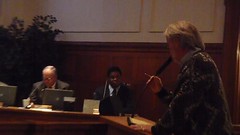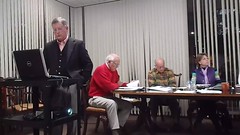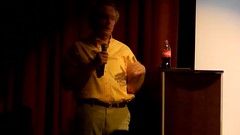 First-time speaker Matt Flumerfelt notes the Valdosta City Council
and the Lowndes County Commission both disclaim responsibility for the
Industrial Authority even though both appoint its members,
and he thinks that may make VLCIA’s contract for the biomass plant
challengeable on constitutional grounds.
He also sent LAKE the appended article on 20 Jan 2011.
First-time speaker Matt Flumerfelt notes the Valdosta City Council
and the Lowndes County Commission both disclaim responsibility for the
Industrial Authority even though both appoint its members,
and he thinks that may make VLCIA’s contract for the biomass plant
challengeable on constitutional grounds.
He also sent LAKE the appended article on 20 Jan 2011.
Video by John S. Quarterman of the regular meeting of the Valdosta City Council, 20 January 2011, for LAKE, the Lowndes Area Knowledge Exchange.
Continue readingFaith In Technology Is What Got Us Into This Mess
by Matt FlumerfeltMany people in the Valdosta-Lowndes County community have faith that the proposed Biomass incinerator won’t harm anyone or anything, but faith in technology is what got us into our current environmental mess in the first place. Those old enough to remember the nuclear power debate will remember how many people gave assurances that nuclear power was safe, yet we see today how difficult nuclear waste is to dispose of and how much damage it has caused when things go wrong, which, human nature being what it is, they inevitably do. The recent gulf oil spill would not have happened if








